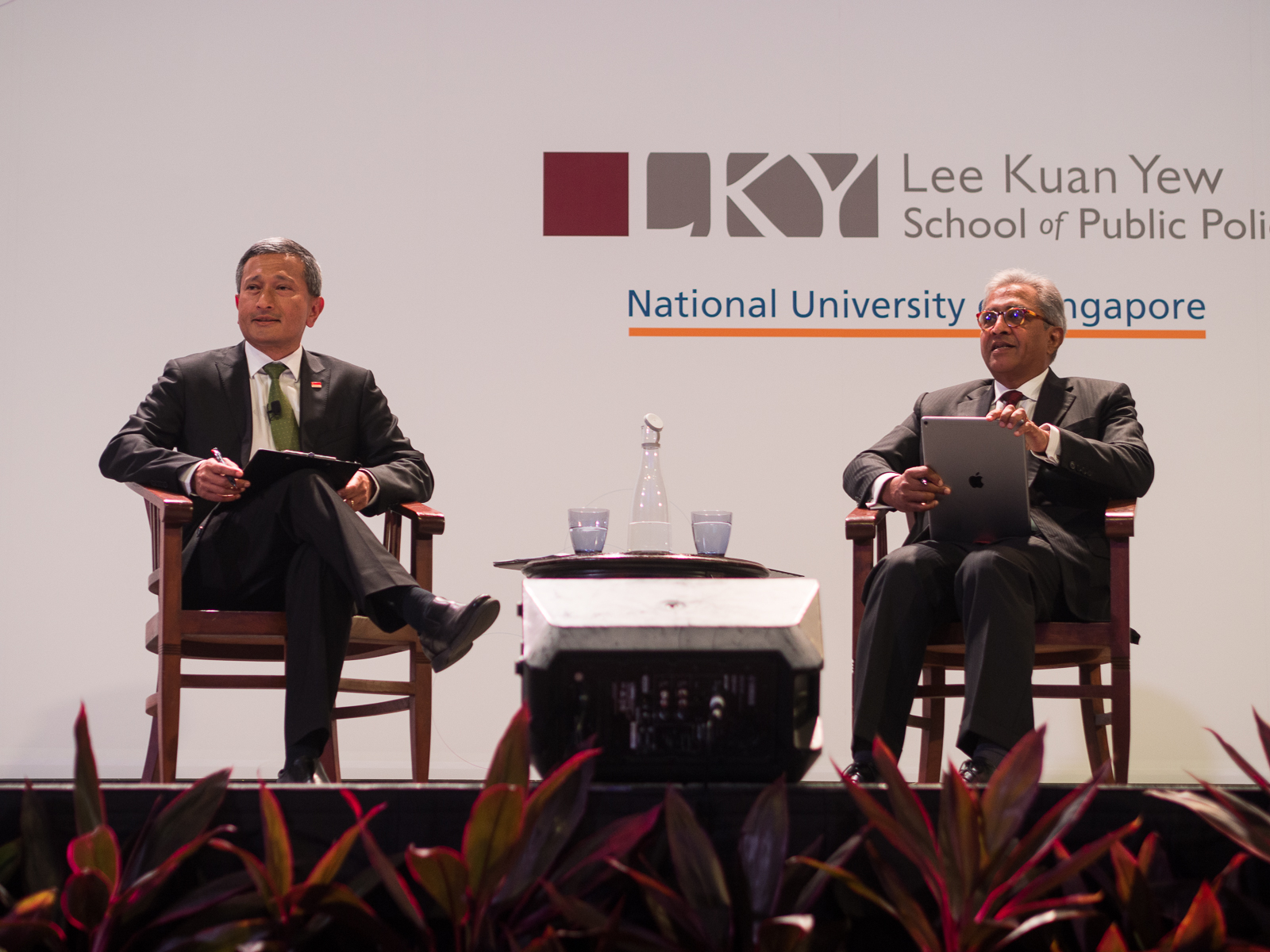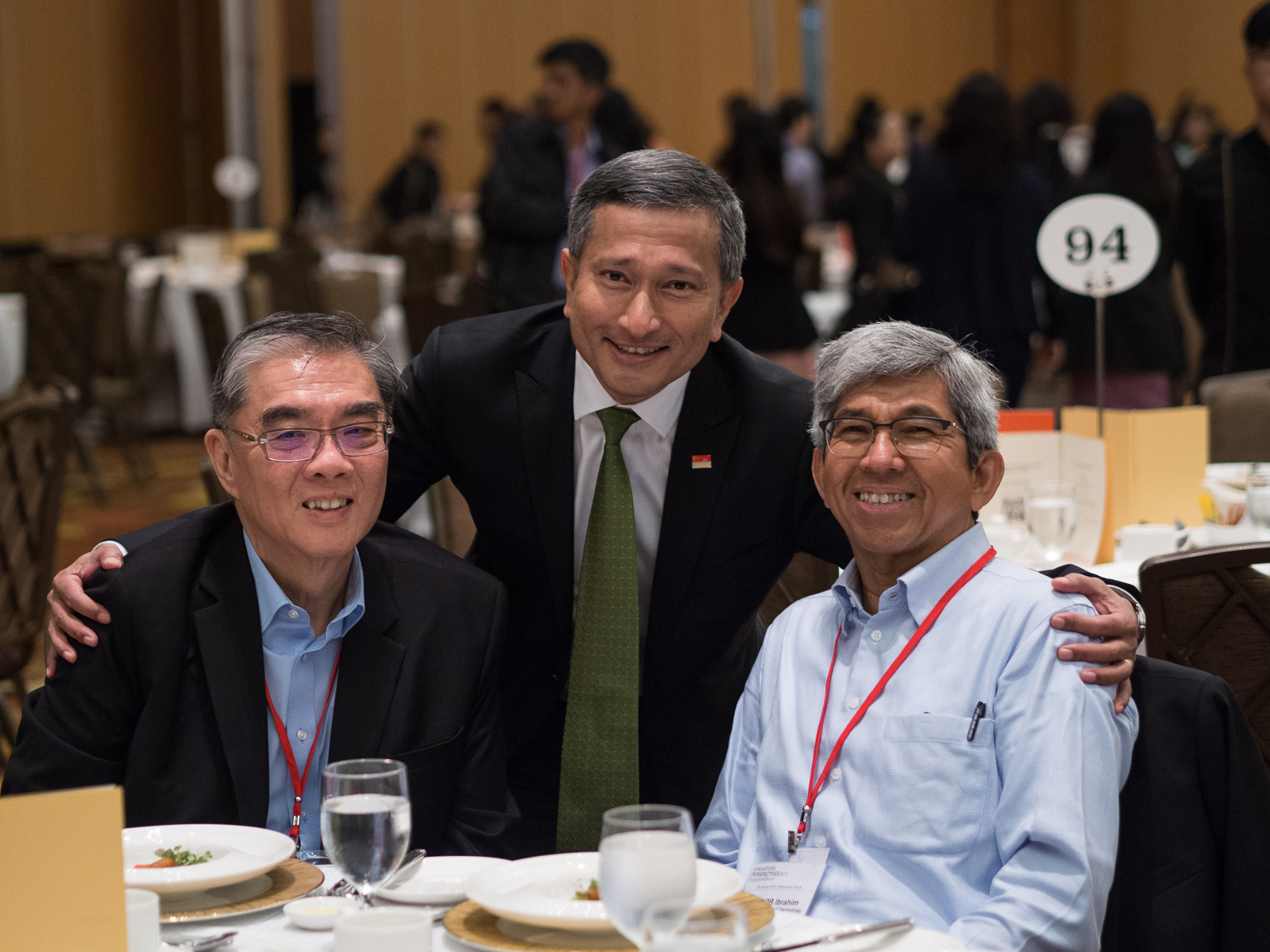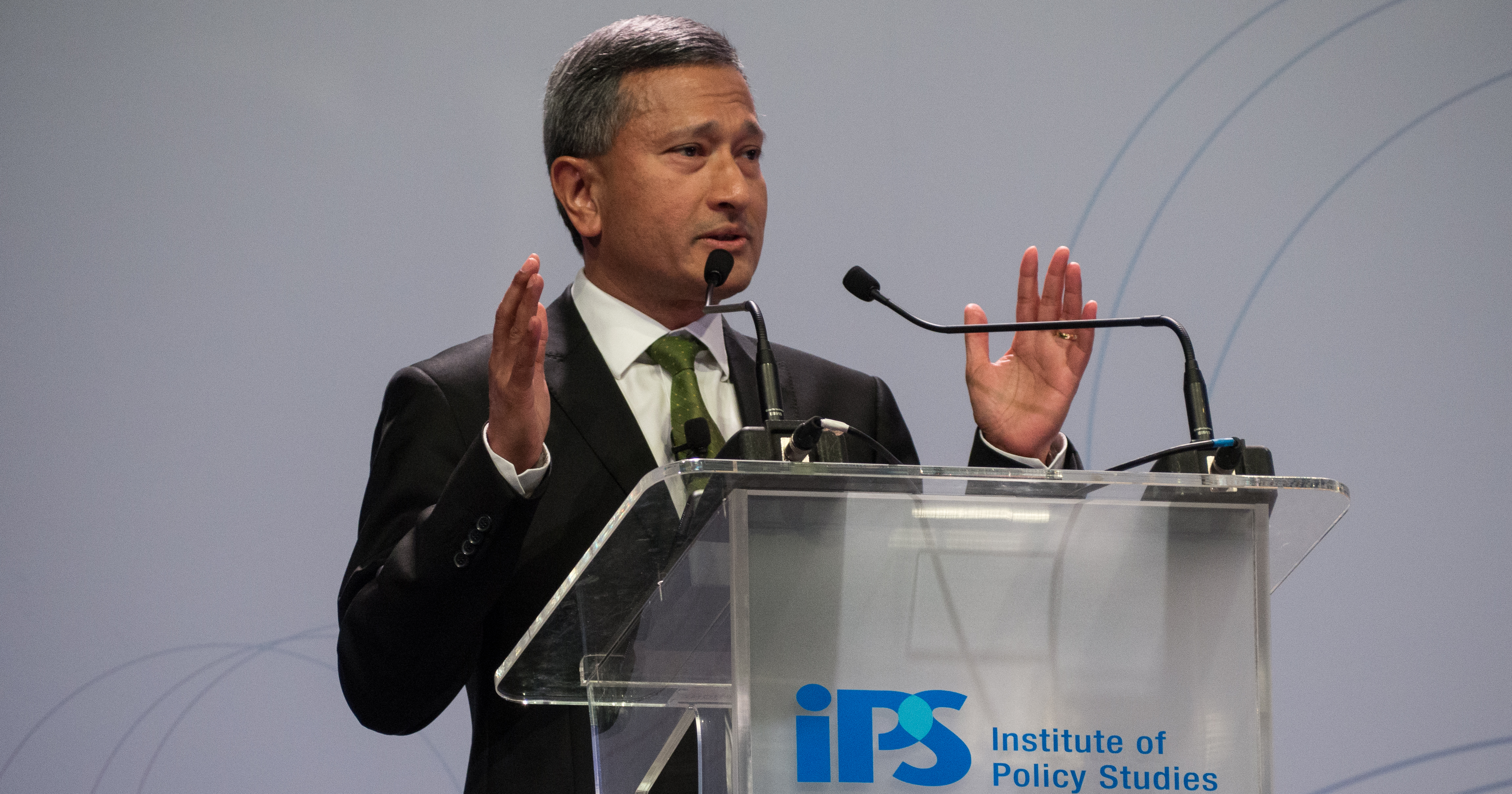Minister for Foreign Affairs Vivian Balakrishnan attended the Singapore Perspectives 2019 lecture, organised by the Institute of Policy Studies (IPS) on Jan. 28, to listen to other guest speakers and discuss foreign policy with an audience of 1,000 people.
Taking the opportunity to speak at the end of Balakrishnan's dialogue, Chief of Government Communications and Director of IPS Janadas Devan said that Singapore benefits from unity, even among opposing politicians.
"If there is a crisis, the Foreign Minister and his government will be able to galvanise the entire population of Singapore behind our national interests," Janadas said.
He added that the opposition has displayed this on several occasions over the past few years, where on matters of national interest, they have made it clear there is no daylight between them and the government.
Foreign Minister will brief opposition MPs
Vivian agreed. He said that when it came to foreign policy, not only did he discuss it with his Cabinet colleagues and the relevant ministries, he would also brief the opposition MPs.
Vivian said: "I'm glad to tell you that it has been my experience so far that there has been no gap, no party politics that supersedes or interfered with our pursuit of foreign policy."
He said that Singapore was too small to afford the raucous to-ing-and-fro-ing that one sees in other countries.
It was better to discuss things with the opposition party and then present a show of unity later.
Balakrishnan added: "You're absolutely right, the current opposition has certainly played their part. We have taken them into confidence. And that makes my job so much easier."
Would naming-and-shaming stop cyberattacks?
Earlier, Balakrishnan fielded a question from a member of the audience about the recent cyberattack on SingHealth.
She asked for the rationale behind not sharing the identity of the state actor behind the attacks.
Balakrishnan acknowledged that Singapore was under attack from multiple parties for commercial and state advantages.
But would naming-and-shaming the perpetrators act as a deterrent? He said that is an arguable point.
Balakrishnan said that the SingHealth attack was highly sophisticated, committed by a party with deep resources and technical skills.
The potential benefits of such an attack would outweigh the risk of being named.
He emphasised that weaknesses in the system needed to be addressed, both technological and human.
He said: “We have decided that simply naming names is not going to make our system more secure."
He quoted Minister S. Iswaran, saying that while it may be of interest to the public, but it is not in the public interest at this point in time to name names.
 Photo by Andrew Wong
Photo by Andrew Wong
Defend your principles
Balakrishnan also touched upon what he deemed were five important principles for Singapore's foreign policy.
- First, be successful and united.
- Make sure you cannot be bought.
- Able to be friends and able to do business.
- To strictly, and in a disciplined way, uphold international law.
- To always say the same thing to all the different parties.
He elaborated on the last point, when a student member of the audience from Victoria Junior College asked him about recent pressure from the United States to avoid China's new 5G networks out of security concerns.
Balakrishnan said the question illustrated the struggle between superpowers in the technological sector.
He replied that Singapore needed the ability to say no, from time to time, in a principled and disciplined way, involving the rule of law, and international law in particular.
He said he would not give a specific answer to a specific case, but emphasised that Singapore reserved the right to say no to their neighbours and to the superpowers if a request is unreasonable or contradicts international law.
 Photo by Andrew Wong
Photo by Andrew Wong
Brave new world, that has such people in it
Earlier, Balakrishnan gave a wide-ranging speech, touching on matters as varied as climate change, the rise of smart technology, increasing political polarisation, and tensions between the US and China.
In order to face these challenges, Singapore needed to remain open to business and talent.
It also needed to actively contribute to a multilateral, rules-based system while diversifying its partnerships.
He pointed to the recent ASEAN Smart Cities Network, established in 2018 while Singapore was ASEAN chair, as an example of building links.
At the conclusion of the dialogue, he reiterated: "We are living in very uncertain times."
It echoed his earlier point that Singaporeans needed to remain resilient and tenacious in order to thrive in this new world.
On its part, the government will help to prepare them for the future.
He said:
"Create, as Mr Lee Kuan Yew always reminded us, a fair and just society, give everyone hope for a better future, and equip every Singaporean with the skills needed so that they know they have a fair chance for a better future."
Related stories:
Top image by Andrew Wong.
If you like what you read, follow us on Facebook, Instagram, Twitter and Telegram to get the latest updates.
